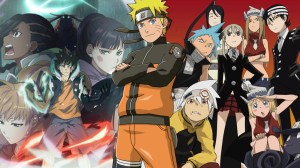Few anime have managed to capture the emotional depth that Naruto achieved. It’s more than just a story about ninjas. Through Naruto Uzumaki’s eyes, we experience themes of loneliness, friendship, rivalry, and redemption — all wrapped in a world that balances political intrigue and spiritual philosophy.
Videos by ComicBook.com
The storytelling isn’t flawless — pacing can drag and filler abounds — but the emotional sincerity of Naruto makes it timeless. That’s why only a handful of anime truly measure up to it. These series carry that same beating heart of determination and humanity. They remind us that shonen anime, at its best, isn’t just about power-ups or battles — it’s about growing, failing, and finding your place in a world that often tells you you don’t belong.
7. Fairy Tail

Fairy Tail is about a guild of wizards — essentially a family of misfits — who take on magical quests and defend their world from dark forces. The story follows Natsu Dragneel, a fiery Dragon Slayer wizard with a fearless personality, and his friends, like Lucy Heartfilia, an aspiring celestial wizard, and Erza Scarlet, a stoic and badass swordswoman. Together, they fight to protect their guild and each other while unraveling their own personal struggles and backstories.
6. Jujutsu Kaisen

If Naruto: Shippuden ever made you crave a darker, sharper version of that same emotional and action-packed formula, Jujutsu Kaisen is the perfect successor. It takes everything fans loved about Naruto and filters it through a modern lens. Jujutsu Kaisen follows Yuji Itadori, a kind-hearted high schooler who accidentally swallows a cursed object — the finger of the legendary demon Sukuna — and becomes his unwilling vessel. Rather than being consumed, Yuji chooses to fight, joining the world of jujutsu sorcerers, who exorcise deadly spirits born from humanity’s negative emotions.
5. Chainsaw Man
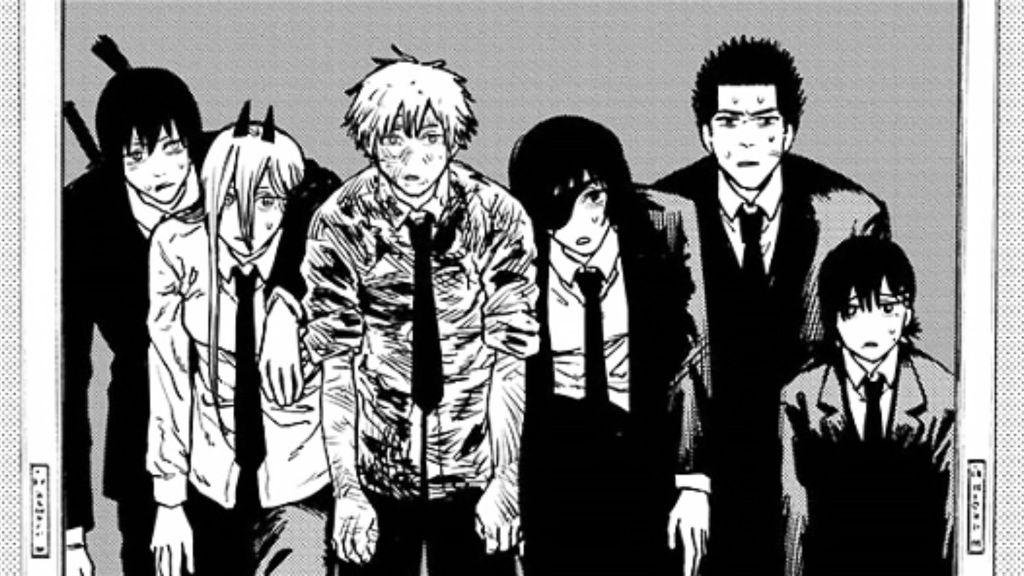
Chainsaw Man follows Denji, a destitute teenager drowning in debt and grief. His only companion is Pochita, a cute chainsaw demon. When Denji is betrayed and killed, Pochita sacrifices himself to merge with him, resurrecting Denji as a hybrid capable of transforming into Chainsaw Man. From there, Denji is recruited by a shadowy government organization to hunt devils — but his motivations remain painfully human: he just wants a better life, food on his plate, friends who care, and maybe, someday, love. But where Naruto leans hopeful and idealistic, Chainsaw Man is unapologetically cynical — and that’s what makes it refreshing. It strips away the comforting “never give up” shonen trope and replaces it with chaotic realism. In short, Chainsaw Man is Naruto’s wild, nihilistic cousin.
4. Rurouni Kenshin

Rurouni Kenshin is a period samurai story filled with sword fights and beautiful traditional backdrops. Much like Naruto Uzumaki, Kenshin is defined by his emotional strength — not his swordsmanship alone. Naruto seeks acceptance from a world that rejects him; Kenshin, on the other hand, seeks forgiveness from a world he’s wronged. Both carry immense emotional scars, and both fight to shape a better future despite the darkness behind them. Rurouni Kenshin explores mature redemption. It’s less about chasing dreams and more about repairing the damage done while chasing them. In many ways, Rurouni Kenshin is what Naruto could grow up to be.
3. Yu Yu Hakusho
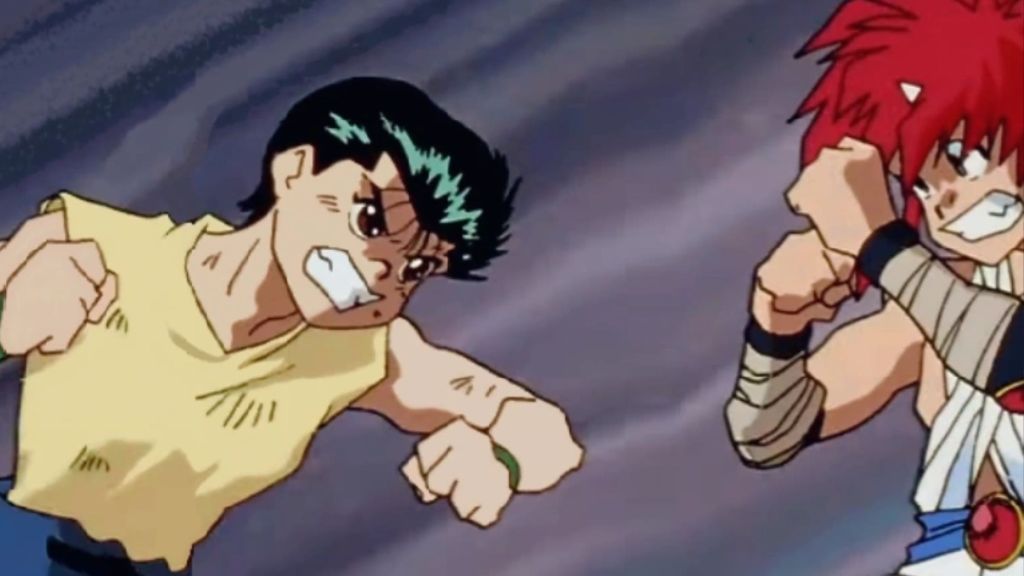
Yu Yu Hakusho is a 90s anime that practically built the foundation for modern shonen. It’s the story of Yusuke Urameshi, a teenage delinquent who dies unexpectedly while saving a child. His selfless act surprises even the afterlife, earning him a second chance as a Spirit Detective — an investigator who handles cases involving demons, spirits, and supernatural crimes across both the human and spirit worlds. Yusuke’s evolution from punk to hero mirrors Naruto’s from outcast to Hokage. The tone is grittier, but the heart is the same. While Naruto leans more toward themes of destiny and legacy, Yu Yu Hakusho thrives on raw humanity and rebellion.
2. One Piece
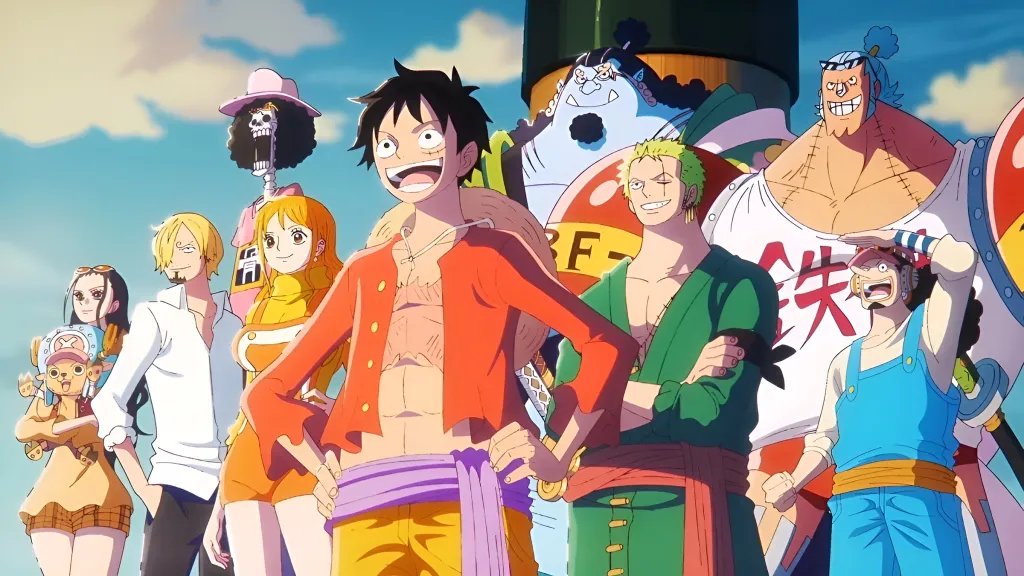
If Naruto taught you the power of dreams and friendship, One Piece turns those ideals into an epic, boundless voyage across a world brimming with wonder, laughter, and heartbreak. It’s not just an anime — it’s an experience, one that’s spanned decades yet remains as emotionally resonant and narratively ambitious as ever. If Naruto was about one boy’s journey to be acknowledged, One Piece is about an entire crew chasing freedom and purpose, united by unbreakable bonds.
One Piece follows Monkey D. Luffy, a carefree, rubber-bodied pirate with a dream to become the Pirate King by finding the fabled treasure known as the One Piece. Along his journey, Luffy builds the Straw Hat Pirates, a chosen family of misfits who each carry their own burdens and dreams. From the swordsman Zoro seeking supremacy, to Nami fighting for freedom, and Sanji pursuing a mythical sea — every character’s backstory hits with raw emotion and genuine purpose. Like Naruto’s Team 7, this crew’s loyalty, humor, and shared resilience define the heart of the series.
1. Bleach
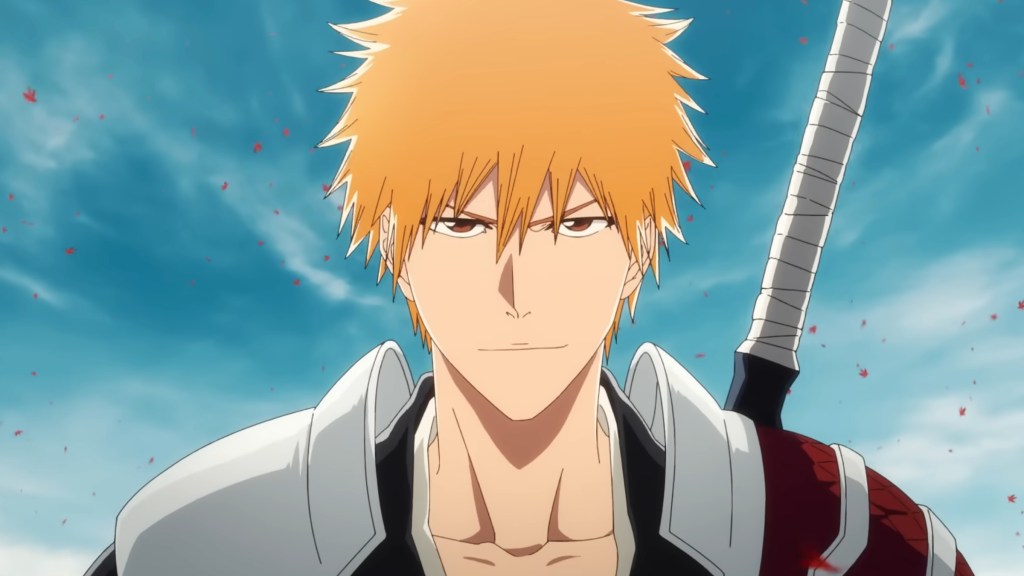
Bleach follows Ichigo Kurosaki, an ordinary high school student who can see ghosts — a skill that suddenly changes his life when he encounters Rukia Kuchiki, a Soul Reaper tasked with defending the living world from malevolent spirits known as Hollows. When Rukia is injured protecting Ichigo, he inherits her powers and becomes a substitute Soul Reaper himself. From there, Bleach opens into a vast mythos of afterlife societies and existential threats that continually test Ichigo’s strength and identity.
Like Naruto, Bleach centers on a protagonist defined by stubborn willpower and empathy. Ichigo, much like Naruto Uzumaki, fights not for glory but to protect others. His power grows hand in hand with personal responsibility — a recurring motif in both series. But Bleach approaches this idea with more psychological maturity. It’s true that Bleach sometimes loses structural focus, especially in filler-heavy periods, but its core ideas and energy never waver.
What do you think? Leave a comment below and join the conversation now in the ComicBook Forum!

